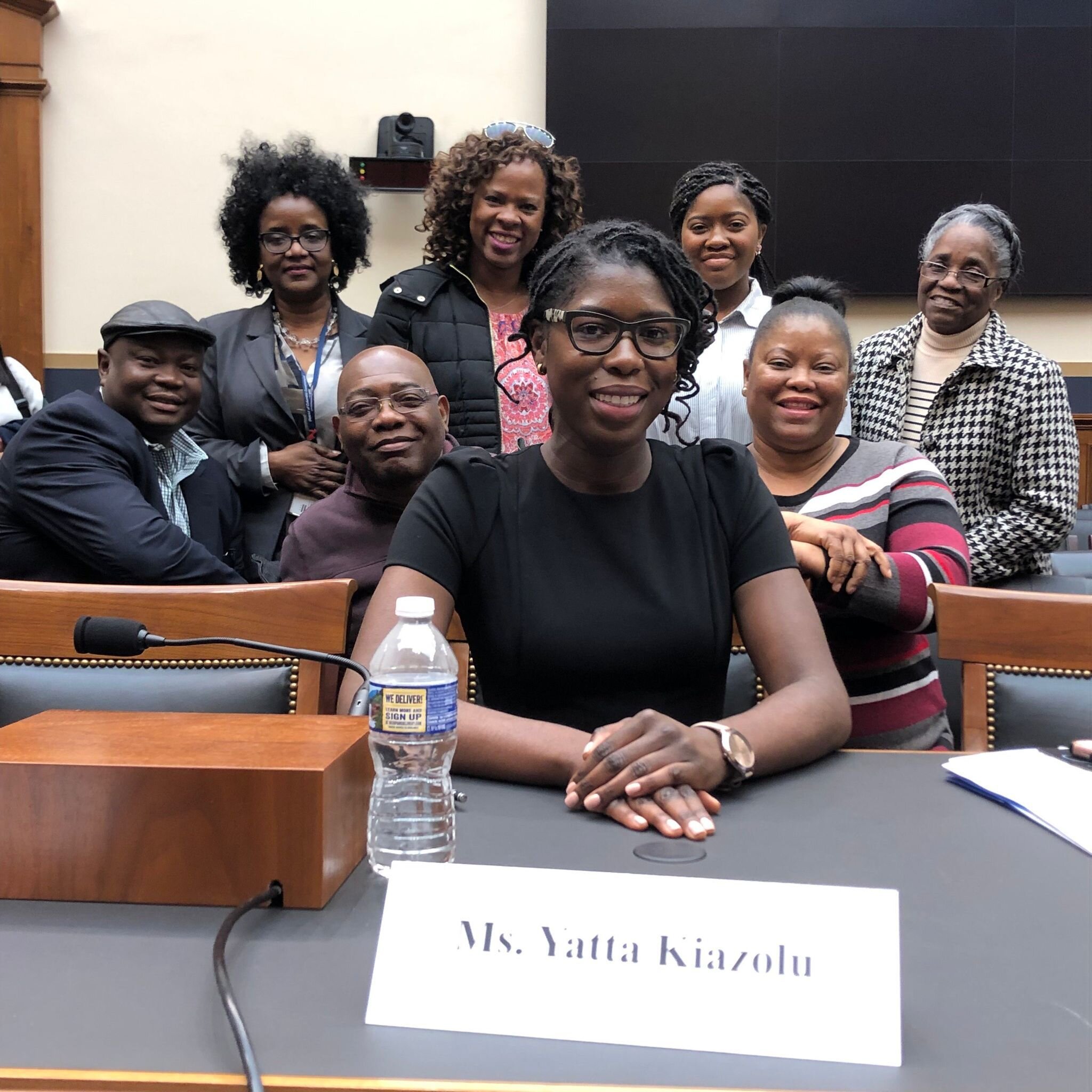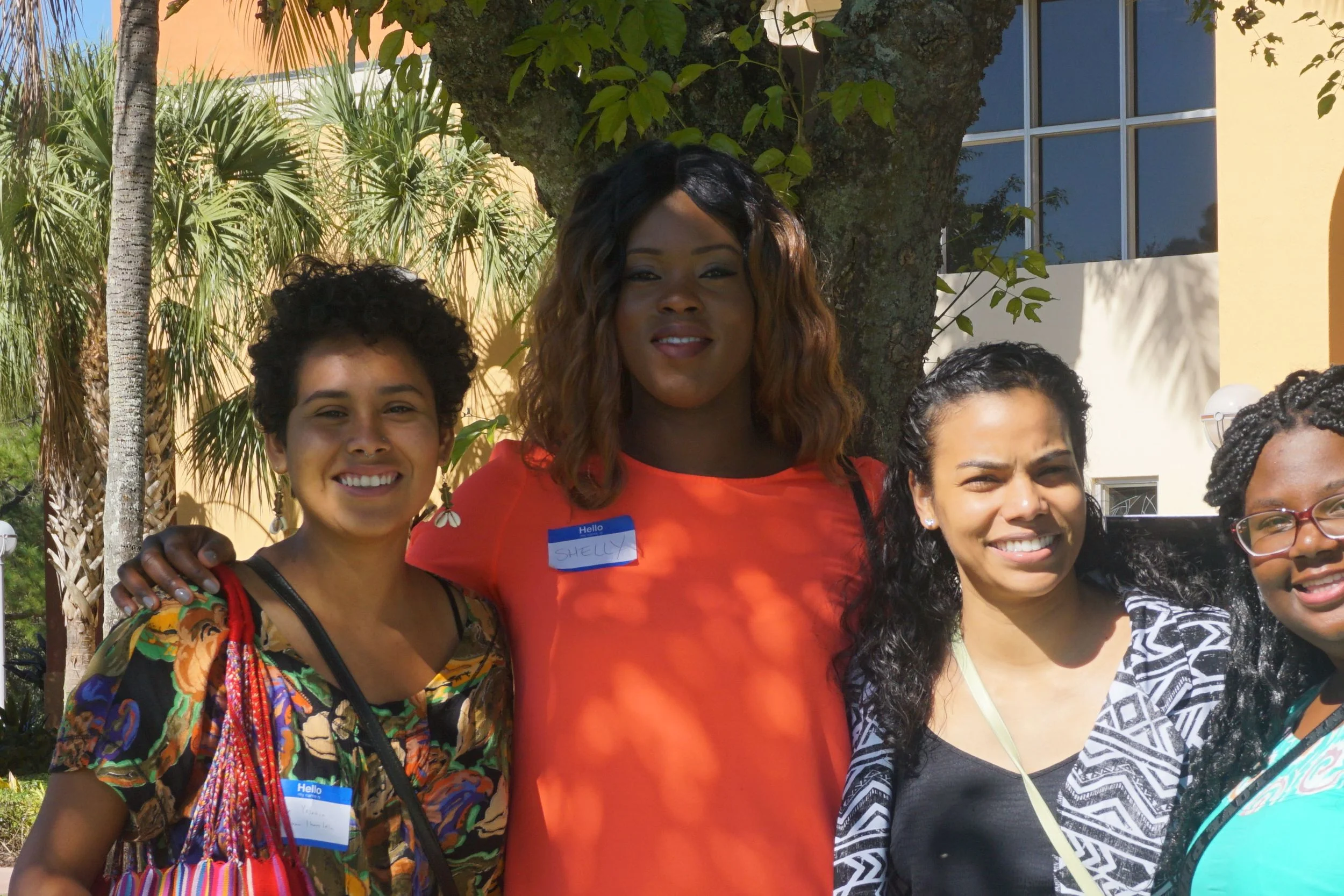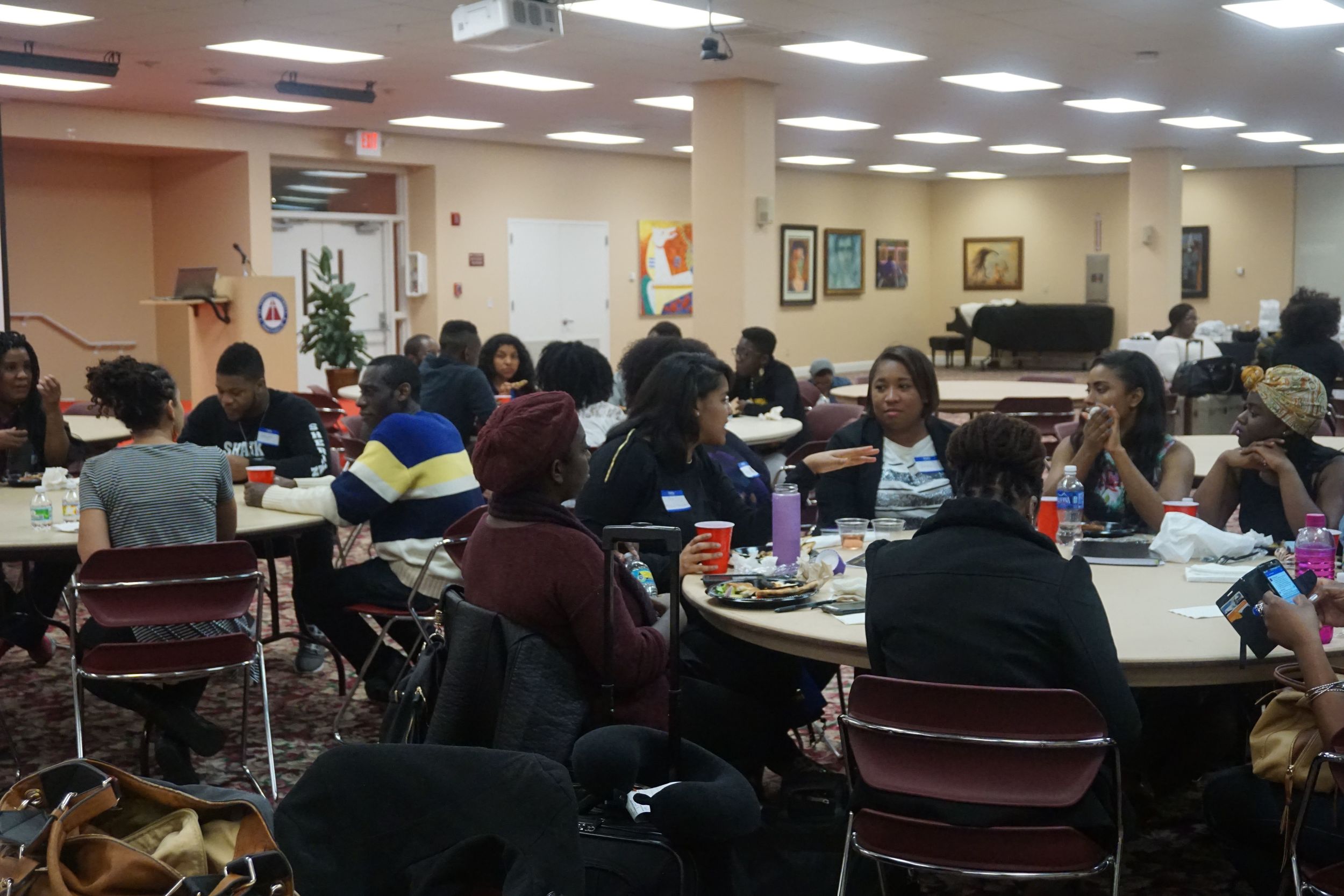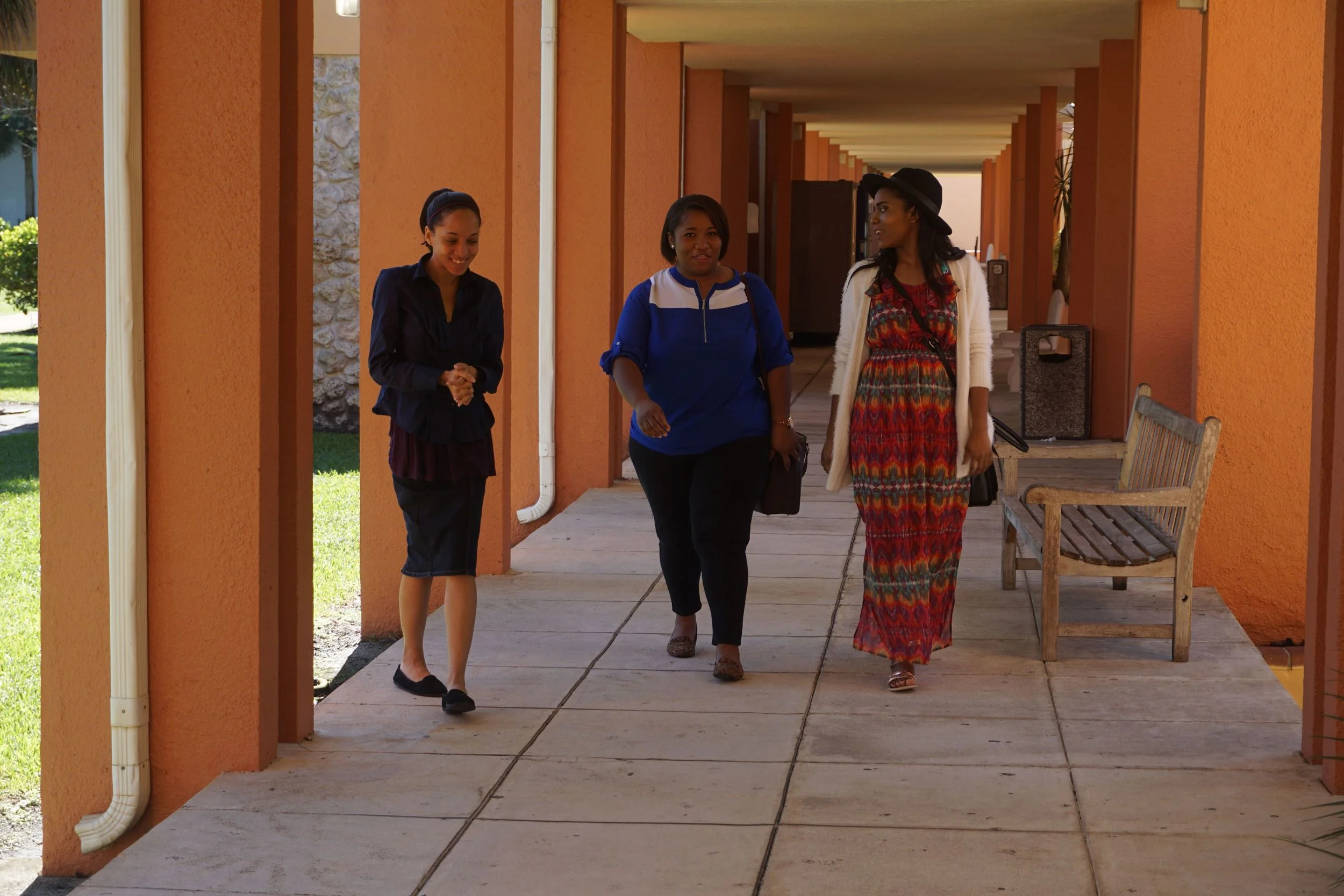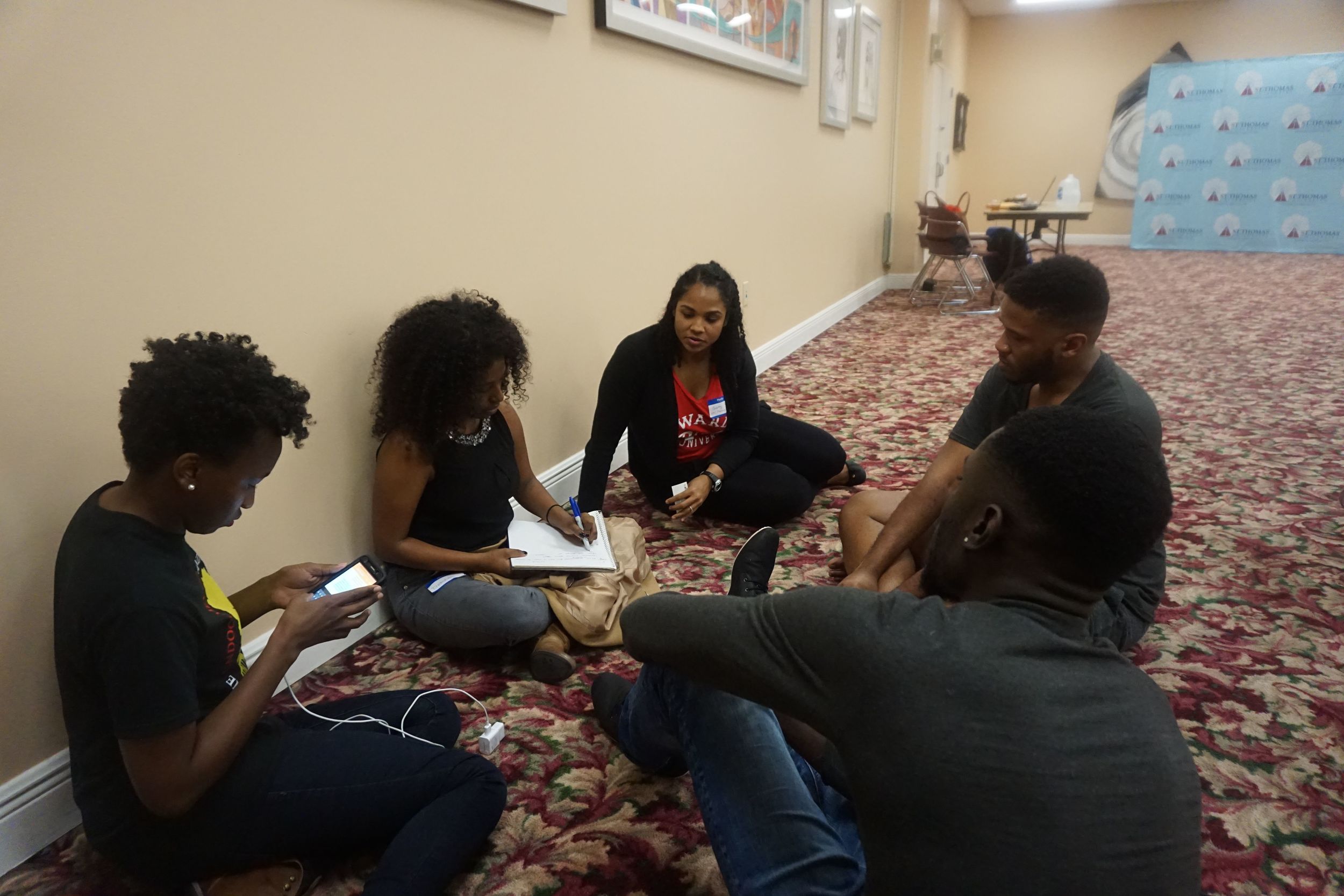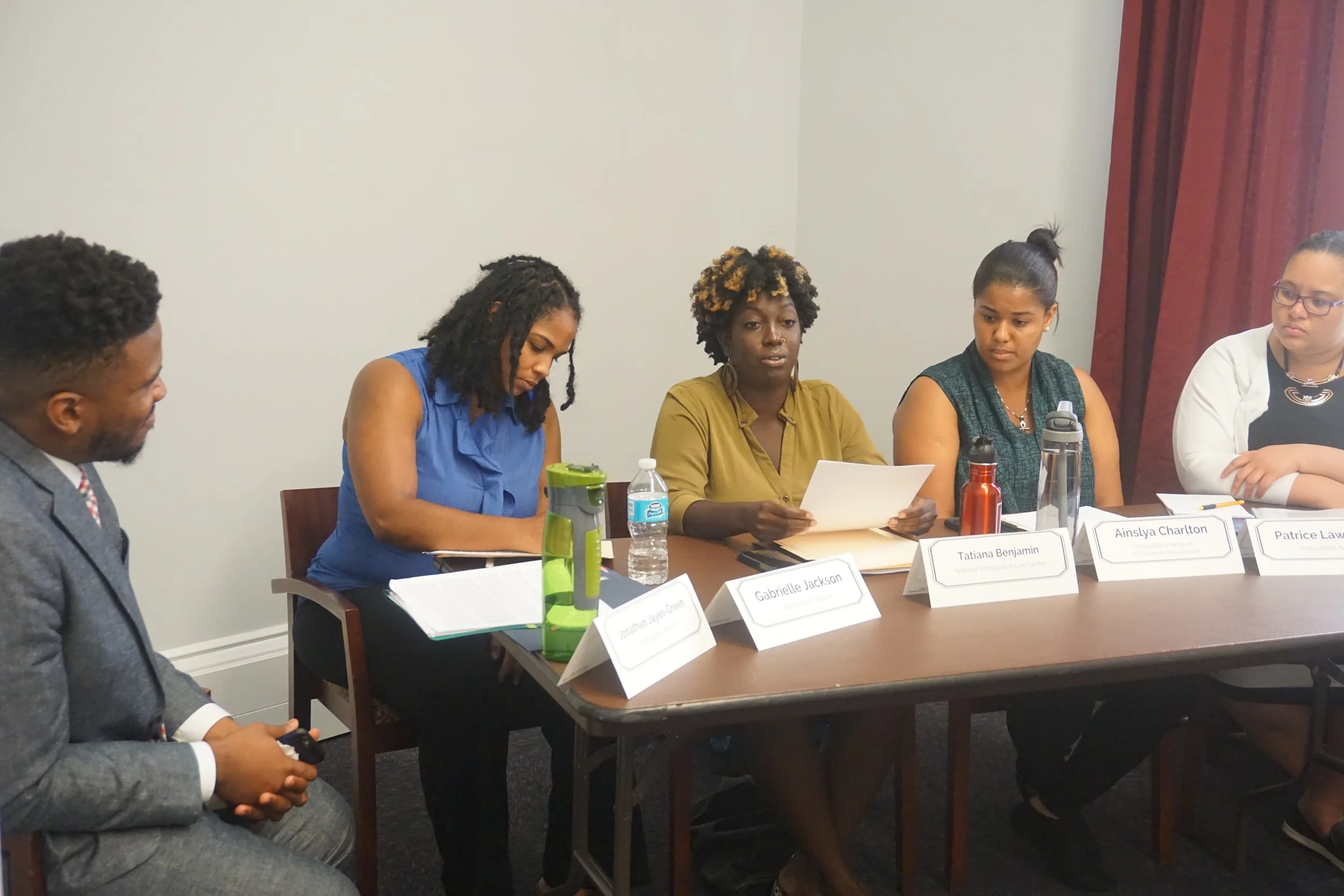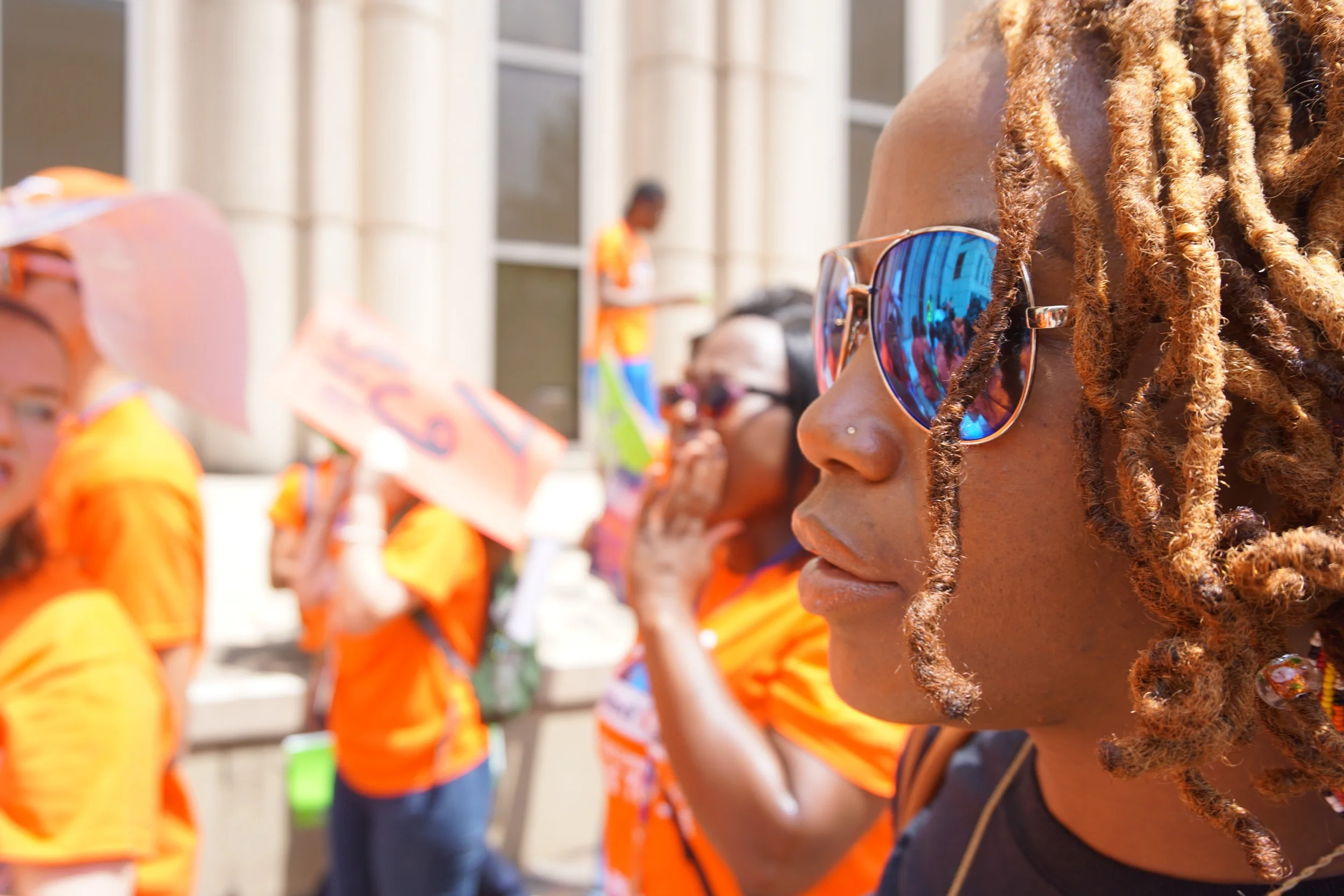Liberian Refugee Immigration Fairness
What you need to know about LRIF
What is Liberian Refugee Immigration Fairness (LRIF)?
On December 20, 2019, the President signed into law the National Defense Authorization Act (NDAA). It included Liberian Refugee Immigration Fairness (LRIF), a provision that allows Liberian nationals who have been living in the United States since November 20, 2014, to adjust their status to become Lawful Permanent Residents (which means they receive Green Cards).
All LRIF applications must be filed with the United States Citizenship and Immigration Services (USCIS) by December 20, 2021. This means that for mailed applications, they must be postmarked December 20, 2021. Applications submitted later than this date will not be accepted.
LRIF Success Stories
LRIF Eligibility
Who is Eligible for LRIF?
In order to be eligible, you must be:
A Liberian national; and
Continuously present in the United States since November 20, 2014.
If you are eligible, you must file a Form I-485, Application to Register Permanent Residence or Adjust Status, by December 20, 2021. If you miss the deadline, you will not qualify to adjust your status under LRIF.
How do I prove I am eligible for LRIF?
You must demonstrate that you are both a Liberian national and have been continuously present in the United States since November 20, 2014.
To prove you are a Liberian national, you can present USCIS with an unexpired Liberian passport or Liberian certificate of naturalization. You may also gather and present other kinds of documents that prove you are a Liberian national.
To prove you have been continuously present in the United States, you can present documents like tax records, copies of passport pages, a Form I-94, utility bills, mortgage deeds or leases, insurance records, birth, death, and marriage certificates, medical records, bank records, school records, employment records, military records, and more.
We strongly encourage you to carefully read the USCIS Policy Manual about LRIF applications. The Policy Manual describes, in detail, what you will need to apply.
Do I need an unexpired Liberian passport to apply?
No. USCIS will accept either primary or secondary evidence of your Liberian nationality to prove you are eligible for LRIF.
Primary Evidence of Liberian Nationality:
An unexpired Liberian passport; or
A Liberian certificate of naturalization.
Secondary Evidence of Liberian Nationality:
An expired Liberian passport;
Liberian baptismal or religious records;
Liberian school records;
Liberian medical records; and more.
If you do not have primary evidence of your Liberian nationality at the time you file your LRIF application, you must tell USCIS why. The best way to do this is to submit a written and signed statement that explains your attempts to get primary evidence along with records demonstrating your attempts. For example, submit a written statement plus proof of a Liberian passport application, proof of communication with the Liberian government who could issue primary evidence, or receipts of transactions to get primary evidence.
USCIS strongly encourages applicants to submit any and all evidence available to them when applying for LRIF. USCIS will consider any and all evidence provided by the applicant, including the applicant’s testimony during an interview, when determining eligibility for adjustment of status.
Consult with a lawyer about what types of evidence you may have of your Liberian nationality.
Is LRIF only for DED holders?
No. Any Liberian national who has been living in the United States. since November 20, 2014, can apply as long as they are eligible. This includes former Temporary Protected Status (TPS) holders who lost status in 2017 and other Liberian nationals without any kind of legal status.
Can a family member of a LRIF-eligible Liberian national apply?
Yes. You must currently be the spouse, unmarried child under 21, or unmarried son or daughter 21 years old or older of a Liberian national who meets the requirements of LRIF. Family member applicants have different requirements than principal applicants to prove their eligibility.
Who is Not Eligible for LRIF?
Anyone who arrived AFTER November 20, 2014, is NOT eligible.
Anyone who has been convicted of any (1) aggravated felony.
Anyone who has been convicted of two or more crimes involving moral turpitude (other than a purely political offense).
Anyone who has ordered, incited, assisted, or otherwise participated in the persecution of any person on account of race, religion, nationality, membership in a particular social group, or political opinion.
These are general guidelines. If you have had any interaction with the U.S. criminal justice system, we strongly recommend consulting with a lawyer about whether you may have your convictions or other grounds of inadmissibility waived in order to become eligible for LRIF.
Find Out Here If You Are Eligible Now
How to Apply
To apply for LRIF, you must complete and file a Form I-485 (Application to Register Permanent Residence or Adjust Status). You will have to register for a biometrics appointment, where USCIS will collect identification information about you. You may also apply for Employment Authorization, also known as a work permit, by completing and filing a Form I-765 (Application for Employment Authorization). These forms are available on the USCIS website.
The application to adjust status, also known as Form I-485, is not considered properly filed until USCIS accepts it. Make sure you confirm that your application has been accepted by calling USCIS at 1-800-375-5283. You can call them whether or not you have a receipt number.
Other required documents that must be filed with your application are found in Section D of the USCIS Policy Manual for LRIF.
For Form I-485, in Part 2 you must choose “Other Eligibility.” In the text box, write “LRIF” to indicate you are applying to adjust status as a Liberian national applicant. For family members, write “LRIF Family Member” in the text box.
Please note that to apply for LRIF as a principal applicant or as a family member, you must currently be in the United States.
How much does it cost to apply?
The filing fee for Form I-485 is $1,140. A biometric services fee of $85 is also required for applicants from 14 to 78 years of age. If you are 13 years of age or younger and filing with a parent’s Form I-485, the filing fee is $750. USCIS has a fee waiver process, if you cannot afford the filing fees or have financial hardship.
Can I Work While Applying for LRIF?
Yes, you can apply for Employment Authorization when you apply for LRIF.
Common Question: I have a work permit (EAD) that expires on March 30, 2020, or January 10, 2021. Can I still work after that?
Yes, but only for a certain amount of time. In January 2021, the Biden Administration automatically extended all Liberian Deferred Enforced Departure (DED) Employment Authorization Documents (EADs) to June 30, 2022, when DED for Liberia will expire. If you are a DED holder with an EAD bearing a March 30, 2020, or January 10, 2021, expiration date and an A-11 category, your EAD is automatically extended through June 30, 2022. You may present your EAD bearing a March 30, 2020, or January 10, 2021, expiration date as evidence of identity and employment authorization for purposes of Employment Eligibility Verification (Form I-9).
Common Question: I do not have a work permit (EAD). Can I get one as soon as I apply?
No. When you have a pending Form I-485 based on the LRIF, you may apply for employment authorization. Applicants should enter (c)(9) as the eligibility category when completing Part 2, Item 27 of Form I-765. USCIS may process a concurrently filed Form I-765 before it completes adjudication of the Form I-485 and before the Form I-485 has been pending for more than 180 days. If the adjustment of status application is pending for a period exceeding 180 days and has not been denied, USCIS will authorize employment for the LRIF applicant who has filed a Form I-765.
Legal Help & Assistance
How Do I Get Legal Help with LRIF?
UBN strongly recommends applying for LRIF with the assistance of a lawyer, especially if you are unsure whether you are eligible or have been involved with the U.S. criminal justice system.
UBN maintains a directory of LRIF Pro Bono and Low Bono Legal Services providers. Click the link below to download the Directory.
UBN has limited funds to assist applicants with fees associated with filing, refiling, or travel expenses for LRIF. Click here to apply for funding assistance.
Advice for Applicants: LRIF and FOIA Requests
If you decide to apply for LRIF, UBN strongly recommends that you either work with an attorney or individually submit a Freedom of Information Act (FOIA) Request to the Department of Homeland Security. A FOIA Request is a request for all documents that DHS has about you, including past immigration applications and other records. Obtaining this information will help you fully prepare to file your LRIF application and to prepare for any interviews or questions that USCIS or DHS may have for you during the process.
You can submit a FOIA Request to USCIS online using this link. Download the FOIA How To Guide below for detailed instructions.
You can click this link to find out more about FOIA Requests in general.
Apply for LRIF through USCIS
Special Notes for LRIF Family Members
What do I do if I and all of my family members are in the United States?
If you are in the United States and are eligible for LRIF, apply for LRIF as a principal applicant and get approved for permanent residence.
If your LRIF-eligible family members are in the U.S., we recommend they apply for LRIF at the same time you do.
Your family members can also apply after you, as long as you are a pending applicant for LRIF, OR if you have been approved for permanent residency BUT you have not yet been granted U.S. citizenship.
You will not be granted U.S. citizenship until after you submit a Form N-400 naturalization application and go to an interview and pass the exam.
Your family members still need to be your spouse or son or daughter at the time they apply for LRIF AND when you are granted permanent residency status.
If they are not still your family member at the time of application, they may still be eligible under the law, but you will need help from a recognized nonprofit or expert immigration attorney to apply.
What do I do if I am in the United States, but my family members are abroad?
If you are eligible for LRIF and you are in the United States, but one or more of your family members are outside of the United States, you should apply for LRIF as a principal applicant and get approved for permanent residence.
After you are approved for permanent residence, immediately file Form I-130 visa petitions for your spouse and your children so your family members can come to the United States and receive permanent residency outside of LRIF. Your spouse and minor children will immigrate through a slower process, which is the normal family-based consular processing.
You can also file for naturalization to U.S. citizenship for yourself during this waiting period. If you do naturalize, the consular process is generally faster for your spouse or minor children who are abroad, because adult single children older than 21 of U.S. citizens generally face long waits in the “first preference,” category as do adult single children over 21 of a permanent resident in the “2B preference” category. Consult an expert immigration lawyer before deciding to go down this route.
If a family member is presently abroad, they should be advised that persons travelling on non-immigrant visas (such as tourist or student visas) are generally not allowed to reenter the United States for the purpose of applying for adjustment of status, with the exception of those on “H” or “L” work visas.
If someone has reentered the United States on a non-immigrant visa in order to apply for LRIF, they should consult with an expert immigration lawyer before proceeding with a LRIF application, as they may still be eligible for LRIF in other ways.
What UBN Is Doing
The UndocuBlack Network has been at the forefront of advocacy efforts involving LRIF. We have partnered closely with African Communities Together to fight for the creation of LRIF, and now we fight for the successful implementation of the program. Below are some of UBN and ACT’s top advocacy priorities and efforts over the past two years.
USCIS Policy Changes
UBN is part of the LRIF Strategy Group, composed of community-based organizations, legal services providers, faith leaders, local government representatives, and other stakeholders from around the country who directly serve and advocate for Liberian immigrants in the United States. Through the LRIF Strategy Group, UBN has submitted multiple advocacy letters to the previous and current presidential administrations, USCIS, and DHS about LRIF.
UBN has successfully requested multiple stakeholder meetings with staff at USCIS to discuss the policy changes we seek for our Liberian community members. We are in continued talks to make sure that LRIF is implemented equitably, and that justice is done.
UBN has identified a number of policy changes necessary to improve LRIF:
USCIS should accept not only unexpired but expired Liberian passports as proof of applicants’ Liberian nationality. Many applicants are DED holders and have already proven their nationality multiple times.
USCIS should dedicate specific staff and a single processing center to LRIF applications, to ensure they are processed quickly and efficiently given the looming deadline.
USCIS should engage meaningfully with Liberian communities across the United States, via their USCIS community relations offices, to ensure that all eligible people are aware of the program.
USCIS should publish application data on a monthly basis to inform advocacy, to allow for re-applications where possible, and to make sure that any outreach gaps are being filled quickly.
USCIS should reassess its policy guidance on LRIF family members, ensuring that they are treated as independently eligible for LRIF and that their specific requirements match the spirit of the law.
Applicant Recruitment, Outreach, & Communications
UBN contracted Ms. Louise Stevens, famed Liberian community organizer and fierce champion of LRIF, to help better inform our advocacy. Ms. Louise works closely with UBN’s Communications team to conduct outreach to the community.
UBN mapped out where Liberian communities are nationwide, to ensure that we have a deep reach into the community.
UBN has partnered with FWD.us and National Partnership for New Americans (NPNA) to widely publicize the availability of LRIF and its January 2021 deadline extension and to provide online informational resources to applicants.
Connecting Applicants with Resources
In LRIF’s first year, UBN referred LRIF applicants to legal service providers nationwide and provided funds to assist LRIF applicants with USCIS fees and other expenses associated with preparing their applications.
Through this landing page in the second year of LRIF, UBN is connecting potential LRIF applicants with vital application information, testimonials from LRIF success stories, and legal and financial resources to make sure that everyone who is able to apply, can actually do so.
Additional Resources
Download our New Report on Liberian Refugee Immigration Fairness Act (LRIF) with Georgetown Law
Download Our Guide to Liberian Refugee Immigration Fairness (LRIF)
Download and View Our LRIF Webinar for Lawyers with ILRC, CLINIC, and Ready to Stay
Download USCIS’s Resources on Liberian Refugee Immigration Fairness (LRIF) and Deferred Enforced Departure (DED) for Liberia
Download Our Guide to Sign Up for USCIS Public Engagement Events
Listen to the DC Bar Let’s Brief It Podcast Episode about LRIF
Questions or Comments
If you have applied for LRIF and have a question, you can leave your comment and questions here
Stay Connected With Our Work
Become a UBN Member



